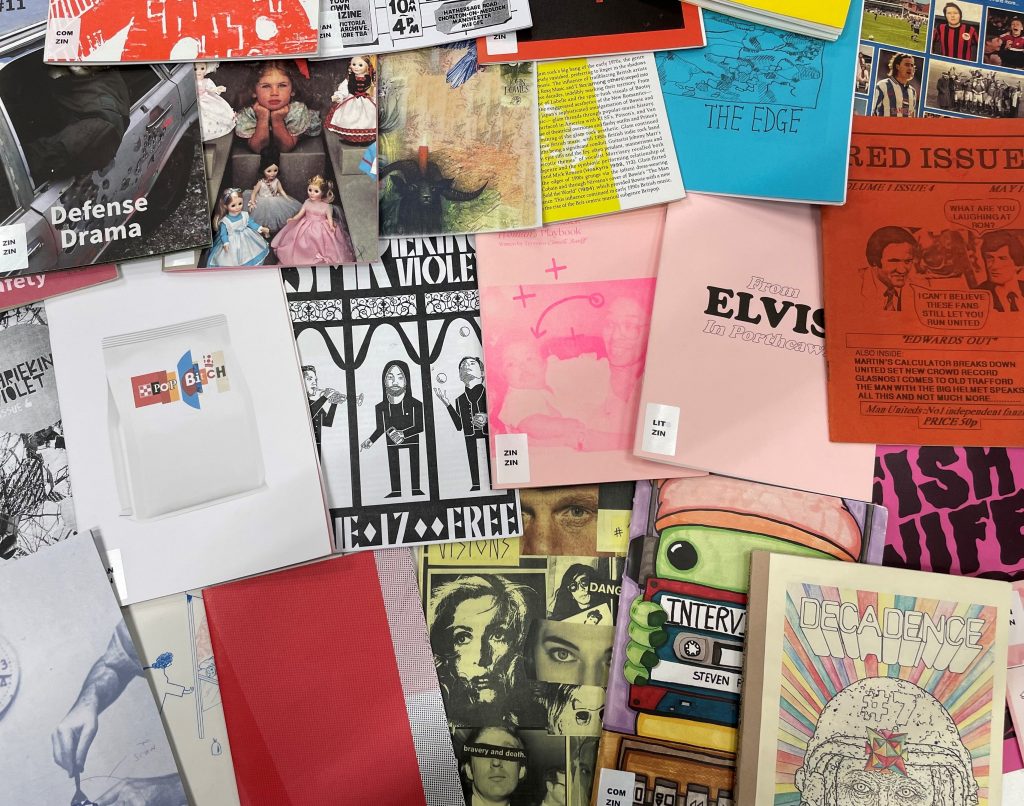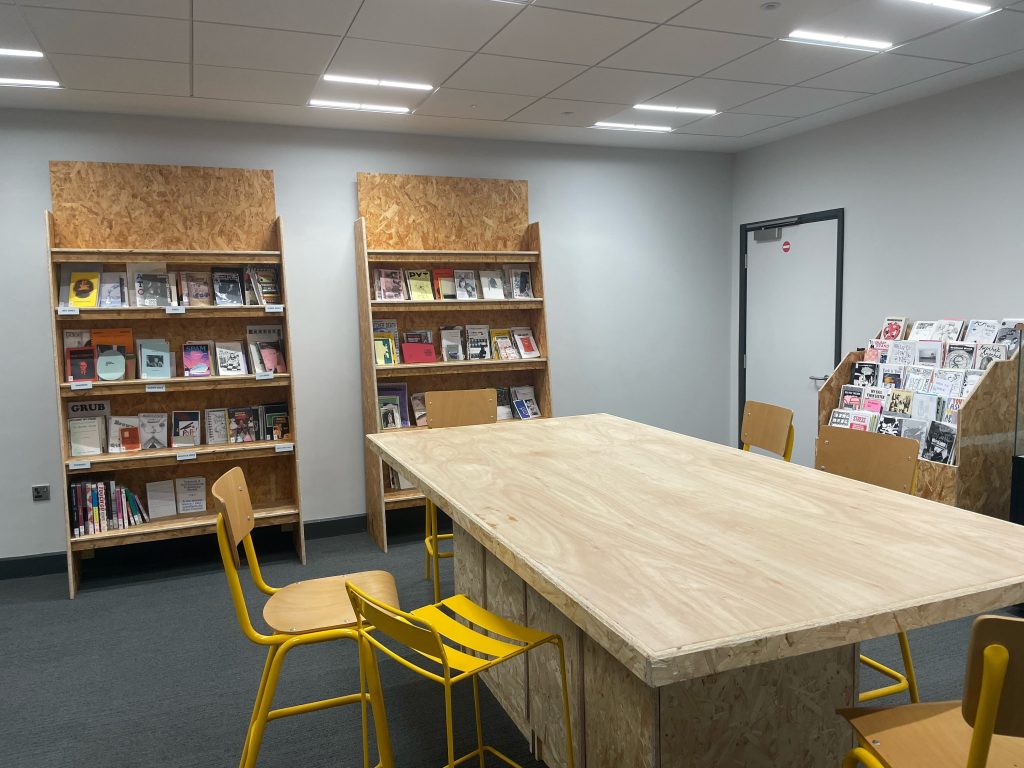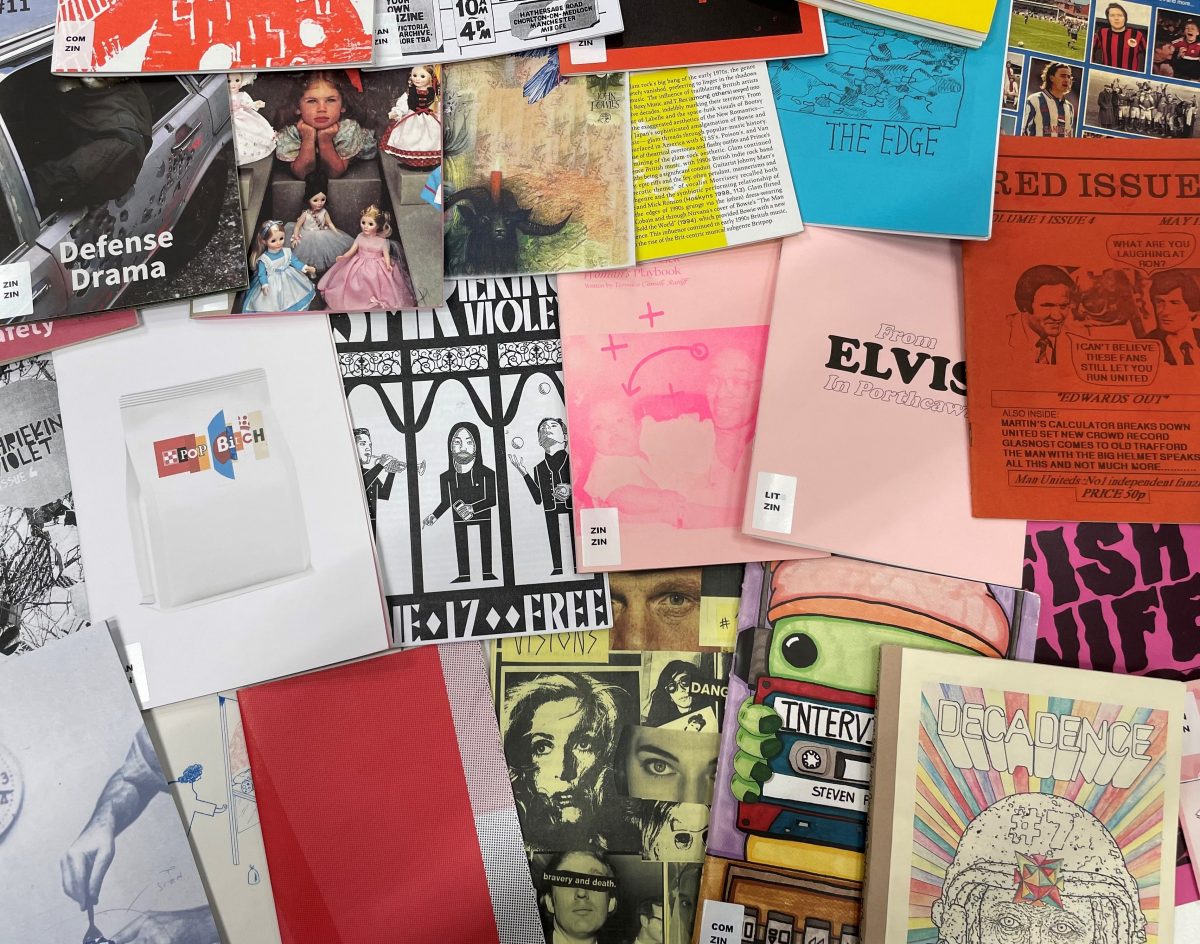
It’s difficult to define exactly, what makes a zine a zine. Zines do not have any set subject or design. You have complete freedom when making one. The only common terms that come up when describing a zine are DIY, self-published and not for profit.
They started being made in the 1920s/30s as a way for science fiction fans to discuss pulp comics. This is where the term fanzine came from. Shortly after that, perzines began to proliferate. Lisa Ben and Jim Kepner, who were originally sci-fi zinesters created Vice Versa and ONE. These titles discussed LGBT rights and issues. From then on zines became the main place for discussions on issues outside the mainstream, whether that was gender, sexuality, race, feminism, etc. Therefore, when the punk scene exploded in the 1970s, it was only right that zines became incredibly popular alongside it. This further developed into the 1990s era of Riot Grrrls, discussing personal experiences on body image and gender norms. In the UK, zines have also developed a close relationship with football. Manchester United’s zine, the Red Issue, even started the Glazer protests in the 2000s.
As you can see, zines have a long illustrious history in many different subcultures. I can almost guarantee that no matter your interest there will be a zine to go alongside it. If there isn’t, it shouldn’t be too hard for you to make one for it.
For you to get the best understanding of what zines are and just how eclectic of a resource they are, you should visit the zine space on the ground floor of Clifford Whitworth Library (near the laptop lockers) and view them for yourself.
What is the Salford Zine Library?
The Salford Zine Library (SZL) is a unique archive of self-published materials. Its goals are to preserve and provide access to zines from around the world. They do this through promoting zines and DIY culture through workshops and exhibitions.
There are currently around 4,500 zines in the collection, all of which have been donated by zine makers. The zines cover an incredibly wide range of topics from football to feminism, photography, poetry, science fiction. This collection is temporarily being housed at Clifford Whitworth Library, so please take advantage of it while it’s on your doorstep.
For more info go to their website: https://salfordzinelibrary.co.uk/
Now you’re probably wondering, why should I care about zines?
Firstly, zines are a great tool for mental wellbeing and to connect with others. Due to their self-published and DIY nature you don’t have to worry about what you write, you can just let it out. Then you can give it out, hopefully finding others to connect with. Our collection and the SZL have a large number of zines on the topic of mental health which are well worth a look through.
Secondly, zines can be a useful way to plan projects and dissertations in creative ways. If you’re struggling to get all your thoughts down on paper or breakdown a complex topic, making a zine can force you to simplify things and make your work more easily digestible. For those in STEM, zines can be a useful way to promote your work to younger audiences.
Thirdly, if you’re a part of the Business School you’ll be interested to know that zines have made a resurgence as a grassroots marketing tool. Gucci have been releasing an ezine called Chime (Chime Zine – Gucci Equilibrium). On top of this Levi’s teamed up with Guardian Labs to create a zine that amplified the voices of young people (Your voice. Your way. with Levi’s | Guardian Labs Projects (theguardian.com)).
Fourthly, there’s the obvious link between zines and the Arts and Media School. Zines can be used to build up your portfolio and get your work out to the public. Before there was blogging, people would swap zines at gigs and concerts as a way to connect. There’s something more personal there that is of real value.
These are just a few ways zines can be of use to you while you spend your time here at Salford, but I know there is a huge list of ways in which you can use zines that I can’t fit here.
The Zine Maker Space

If after all this you’re thinking, ‘Gee whizz, I’d love to make a zine’, then you’re in luck. We are currently in the process of building a Zine Maker Space on the ground floor of Clifford Whitworth Library. This will have all the equipment for you to make zines. Throughout the year we’ll host workshops on zine making, helping anyone who wants a guiding hand.
For now, I will leave you a great video on how to fold a prototypical eight page zine:

